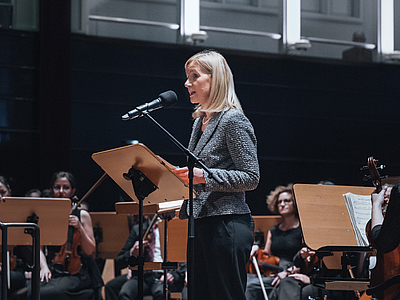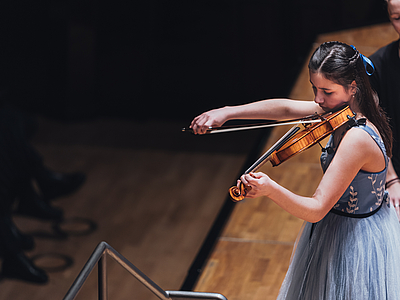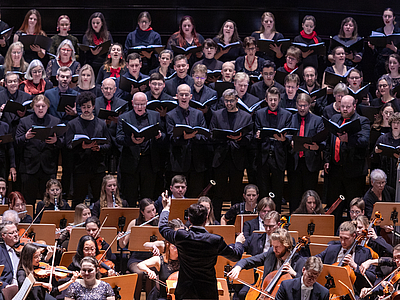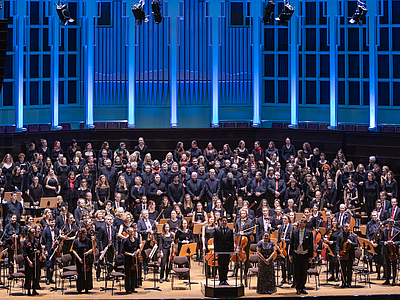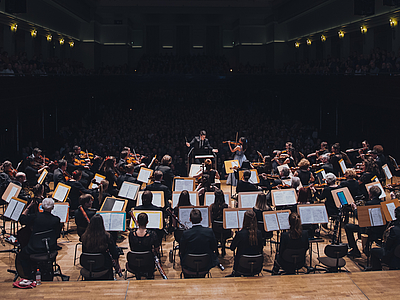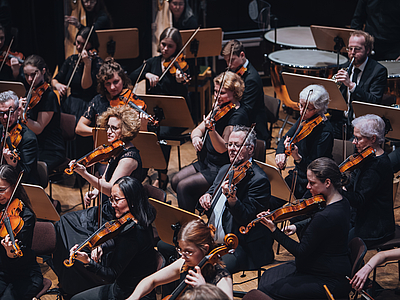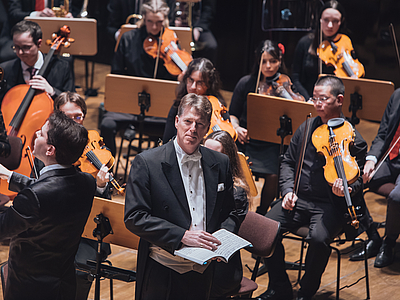A Sea Symphony – Phenomenal end-of-semester concert at the Glocke
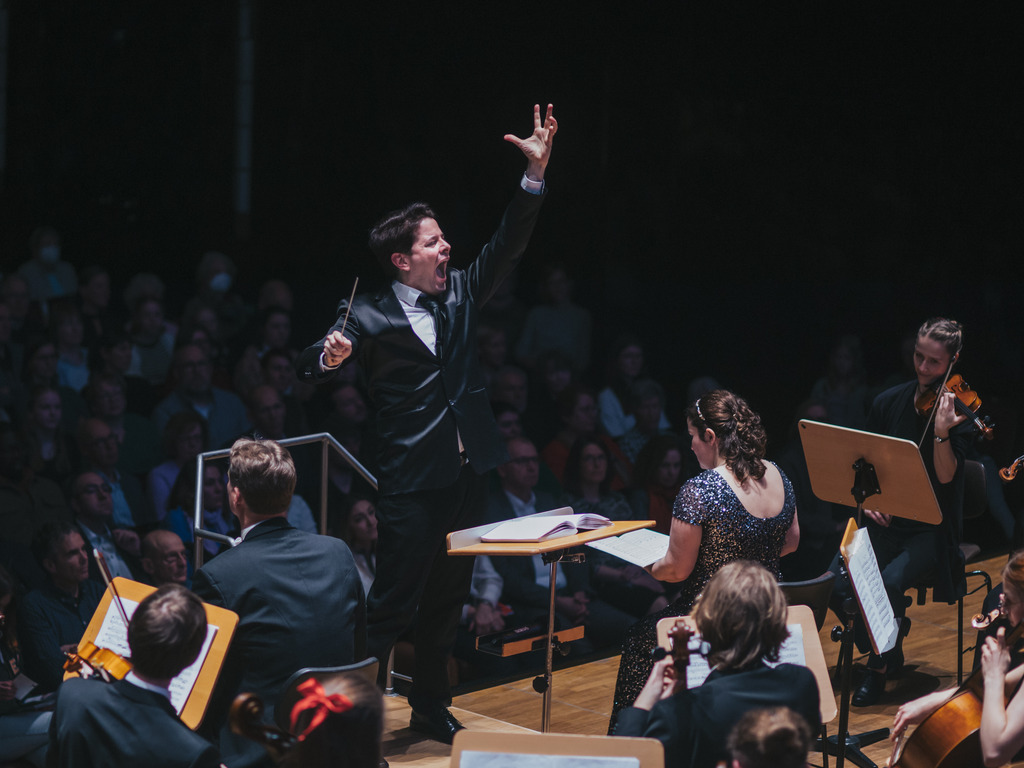
What an enthralling overture! After just a few beats, the violin solo rises on soft, clear strokes above the airy soundscape of the strings, winds its way ever more vigorously and dancelike to the highest heights, then, at the very end, alights, evanesces. Soundless. The Lark Ascending, a romance by the English composer Ralph Vaughan Williams, performed by 16-year-old Pilar Policano. A bravura piece. And the prelude to a captivating end-of-semester concert by the University of Bremen's orchestra and choir in the packed Glocke, conducted by Mariano Chiacchiarini, the university’s Director of Music since September 2022.
Chiacchiarini rehearsed A Sea Symphony, the first symphony by Vaughan Williams, premiered in 1910 and a monumental work, as a full-length piece. "For me, Vaughan Williams is one of the underrated composers," says Chiacchiarini. "A Sea Symphony is one of my favourite pieces and I’m also a little bit proud that we’ve now performed this work for the first time in Bremen." The symphony’s lyrics come from the American poet Walt Whitman’s Leaves of Grass, a metaphorical poem about human life and its development and, yes, it’s about explorers, too. Williams, a Briton, composed exuberant music for it, powerful and almost imperial, even though he was a left-wing liberal. "Shortly before the First World War, Williams sensed the dangers of the time and wanted to use his symphony to express the unifying power of the sea. Unfortunately in vain at the time, but a reminder for us today," said Chiacchiarini at the end of this inspiring concert.
The two renowned professionals among the musicians, soprano Karola Pavone and baritone David John Pike, brilliantly harmonised their superb voices with the choir – 115 singers together with 80 musicians, all packed onto the practically overflowing Glocke stage, all of them students, staff and alumni of the University of Bremen. For Mariano Chiacchiarini, who conducted this demanding symphony passionately yet unpretentiously, the preparations were a mammoth task.
Why put himself through this work with amateurs, when he conducts first-class orchestras all over the world and has been honoured with awards like the ECHO Music Prize and the German Record Critics' Award? "I just enjoy it," says Chiacchiarini. "I can feel the enthusiasm of our musicians, I can see how they develop musically. It might sound melodramatic, but we’ve become a family, a big family. And I get a lot back.”
This enthusiasm carried over to the audience, who cheered the choir and orchestra with gusto. To have had such a fantastic music director for over a year now – the University of Bremen can count itself lucky.


